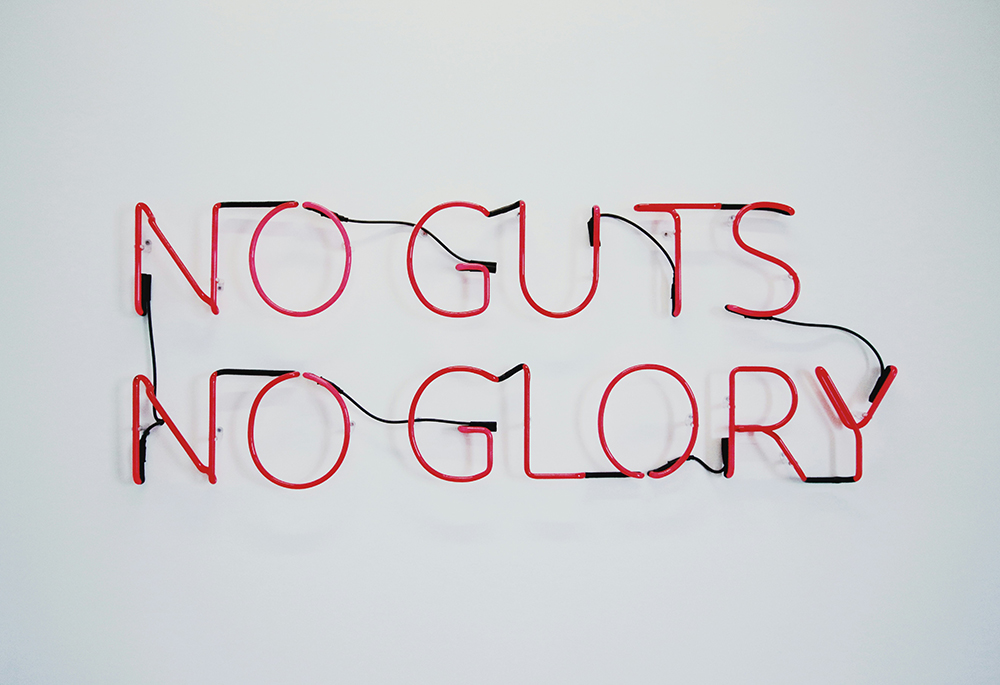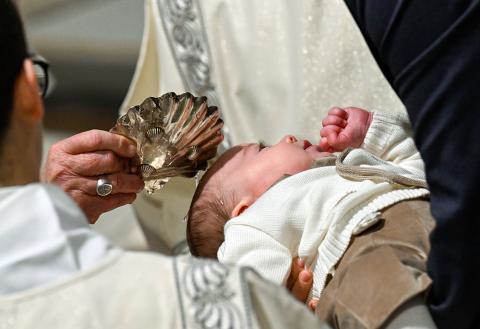
(Unsplash/Artem Bryzgalov)
When I started teaching high school, I seemed to have a knack for getting involved with the troublemakers. I think they sensed that I sympathized with them. Once, in the last week of the school year, I got called to the principal's office. There was one of my protégés with her father and mother, gathered in the office because my young friend was rebelling against her parents. Exercising the little power she had, she decided to fail a class and not graduate. Perhaps so that they would be ashamed? So that they would see her as an individual, not an extension of their egos? All I understood was her determination; she refused to turn in the English paper on which her graduation depended. Her only explanation? "I don't want to, I don't feel like it."
Finally, her father lost it. He shouted, "Do you think I like going to work every day? Do you think that I want to spend my days at the tedious job that provides you with a very good life?"
In a flash, I understood. My young friend saw her parents caught in traps of achievement, status and wealth, as strangers to their deeper selves. She was refusing to fall into that trap. She seemed to understand Qoheleth's proclamation, "All things are vanity! ... For what profit comes ... from all the toil and anxiety of heart?"
Today's readings interrogate us: What is truly important in your life? Some say we can discern a person's most honest answer by observing how they earn and use their money. For others, it's the way they spend their time. Jesus warns: "Take care to guard against all greed … one's life does not consist of possessions."
The poet Mary Oliver asks, "What is it you plan to do with your one wild and precious life?" That can be a rather frightening question. As Oliver asks in the same poem, "Doesn't everything die at last, and too soon?" Her questions remind us that we have the ability and responsibility to choose who we want to become. That doesn't mean that we can control all the circumstances of our lives, but that we can decide how we want to respond to both what we can and cannot control.
In today's Gospel, two brothers fight over their inheritance, the material legacy their father left behind. They seem to believe that the stuff of life — an estate, household treasures — are vital to their happiness. Even without living in our modern society, when some estimates say we take in about 100 ads per day, they were gauging their lives by things external to them as human beings.
Jesus offers a different option: become rich in what matters to God. That's a wonderful, philosophical and pious answer. But what does it mean in real life? Almost equally philosophically, Paul tells us to "seek what is above," because we have "died, and [our] life is hidden with Christ in God."
Advertisement
Paul at least refers us to something concrete: our baptism. He tells us we are "new selves," people who can define ourselves only by our commitment to and life in Christ, no matter our nationality, our economic condition or gender (Galatians 3:28). Paul called Christians to live in Christ's new age, the reality we experience when the resurrection serves as the key to understanding the meaning of life.
Paul invites us to grasp the freedom we have through our relationship with Christ. Jesus lived in absolute freedom. In spite of expectations or threats, his only goal was to live his Father's will, in other words, to develop his humanity to the highest degree possible and thus share in the divine life (Philippians 2:5-10).
Today's liturgy invites us to learn how to take hold of the freedom we have and to help it grow like bamboo, the fastest growing and one of the most useful plants on Earth. To do this, we need to cultivate new attitudes through asking and answering serious questions.

Pope Francis baptizes a baby during Mass in the Sistine Chapel at the Vatican Jan. 12, 2025, the feast of the Baptism of the Lord. (CNS/Vatican Media)
We need to ask, "What is the real goal of my life? What do I genuinely need and what do I just want? How might what I want divert me from what my life is all about? Where do God and others fit into this scheme?"
Somehow, probably unconsciously, these are the questions my friend asked at the end of her senior year. The particular choice she made may not seem the best, but she was trying to grasp and choose the real meaning of her life, far beyond appearances and status. She was gutsy.
Our invitation too is to be gutsily free to make our life as meaningful as our baptism promises it can be.
